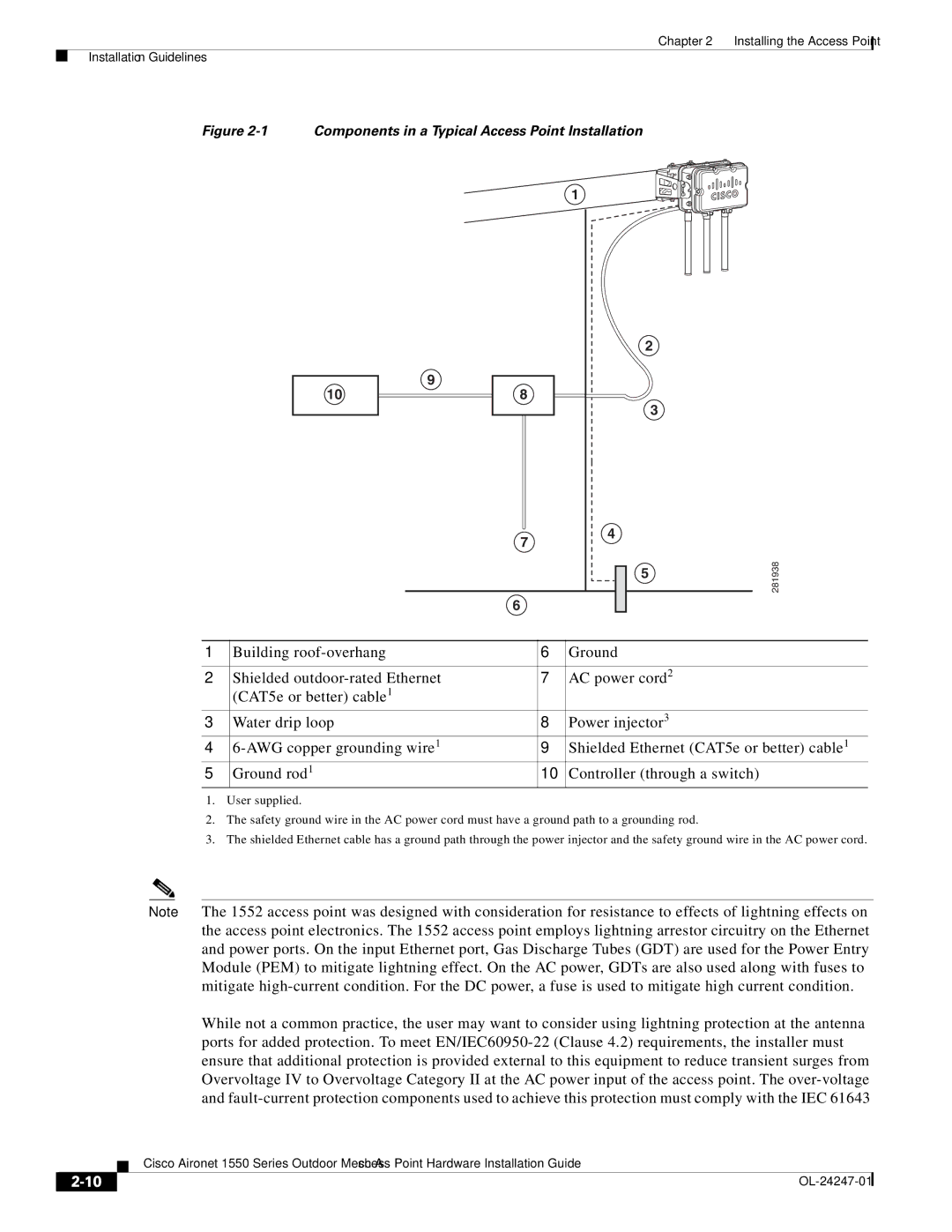
Chapter 2 Installing the Access Point
Installation Guidelines
Figure 2-1 Components in a Typical Access Point Installation
10
| 1 |
|
| 2 |
|
9 |
|
|
8 | 3 |
|
|
| |
7 | 4 |
|
|
| |
| 5 | 281938 |
|
| |
6 |
|
|
1 | Building | 6 | Ground |
|
|
|
|
2 | Shielded | 7 | AC power cord2 |
| (CAT5e or better) cable1 |
|
|
3 | Water drip loop | 8 | Power injector3 |
4 | 9 | Shielded Ethernet (CAT5e or better) cable1 | |
5 | Ground rod1 | 10 | Controller (through a switch) |
1.User supplied.
2.The safety ground wire in the AC power cord must have a ground path to a grounding rod.
3.The shielded Ethernet cable has a ground path through the power injector and the safety ground wire in the AC power cord.
Note The 1552 access point was designed with consideration for resistance to effects of lightning effects on the access point electronics. The 1552 access point employs lightning arrestor circuitry on the Ethernet and power ports. On the input Ethernet port, Gas Discharge Tubes (GDT) are used for the Power Entry Module (PEM) to mitigate lightning effect. On the AC power, GDTs are also used along with fuses to mitigate
While not a common practice, the user may want to consider using lightning protection at the antenna ports for added protection. To meet
| Cisco Aironet 1550 Series Outdoor Mesh Access Point Hardware Installation Guide |
